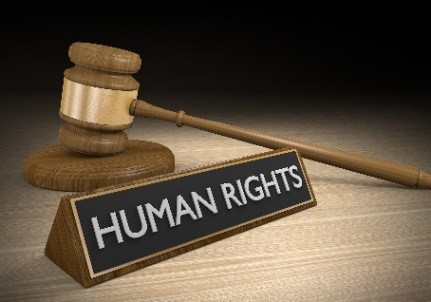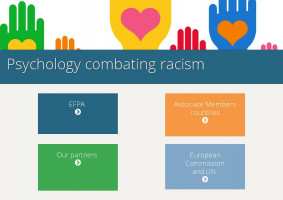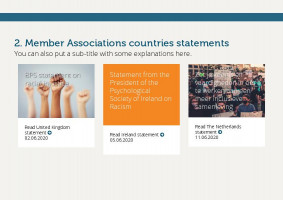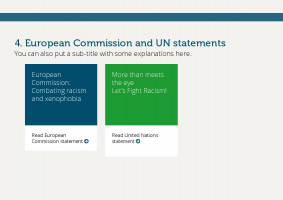(1)(1)_w380_h228_1.jpg)
EFPA’s Board of Human Rights and Psychology
June 15,2020
On May 25th, 2020, the world witnessed the murder of George Floyd. George Floyd, an African-American, was killed in Minneapolis, Minnesota, USA, by a police officer, observed by three further policemen. The video of Floyd's death went around the world. It demonstrates the brutal expression of structural racism embedded in US-American society as well as the individual prejudice of the perpetrator.

Racism is embedded in our societies
Racism is a structural element not only of the United States of America, but also of many Western societies, if not of all societies in the world. Racism is embedded within the structures, institutions and organizations of our societies. The consequences of racism are seen in the devaluation, discrimination and violence against minorities. Racism is based on power differences between groups. It produces patterns of conduct and shapes social interaction in a way that enforces and stabilizes hierarchies, which ensure the white majority holds a dominant position over ethnic minorities, immigrants, foreigners and other minority groups.
Racism is inside our heads
Racism is not only an attribute of societies - it is also inside our heads. Human beings are well equipped to categorize the world into us and them. We often use such categorizations to position the ingroup above the outgroup. Outgroup devaluation can help to improve the status of our ingroup and thereby of our identity. Societies' structural racism fits excellently with these psychological mechanisms: The prejudice of individuals and their tendencies to discriminate against outgroups even to the point of violent action against such groups are supported by societal racist structures. And racist societal structures are reinforced and continue to exist if members of that society see the world through racist eyes.

Structural and individual racism are not confined to the United States of America. They can be found in racist ideologies and individual prejudice across Europe. Vivid examples are the hate-crimes against ethnic minorities registered all over Europe. Less visible but nevertheless highly invasive forms of racism are the incarceration of freshly arrived immigrants to Europe in overcrowded "reception centres" despite the dangers of the deadly infection that goes with COVID-19. One might also cite the brutal exclusion of refugees at the southern European borders.
Racism endangers basic psychological needs.
As evidenced in the murder of George Floyd and many hate crimes before, racism in its extreme form violates the right to live. In a more subtle way, racism also endangers basic psychological needs. The psychological consequences are dramatic, ranging from chronic feelings of threat and clinical syndromes such depression, to low levels of self-esteem and self-confidence and a reduced capacity to give structure to one’s life. There are significant consequences too for society as a whole: Racism reduces the trust and commitment to society whilst breeding insecurity and violence - as can be observed these days in the USA.
The toll of racism for its victims and society in general is extreme. Racism destroys individual lives and cultures. We call upon everyone who seeks to be a responsible citizen to refrain from using categorisations to devalue those who ‘are not one of us’. We invite everyone to look to a new vision and recognize all people as human beings of equal worth and rights. And we offer our skills and knowledges as professional psychologists to support our societies, its members and its leaders, in an onward journey away from racism.
This information has been prepared by EFPA’s Board of Human Rights and Psychology, convenor Prof. Dr. Ulrich Wagner
The European Federation of Psychologists’ Associations (EFPA) represents psychologists’ associations across 38 European countries and some 350,000 psychologists. EFPA brings together Europe’s experts in Human Rights in its Board Human Rights and Psychology.
http://efpa.eu
http://psychologists-support-hub.eu
Contact:
EFPA Headoffice: Uli Wagner at headoffice@efpa.eu
Board Human Rights and Psychology








